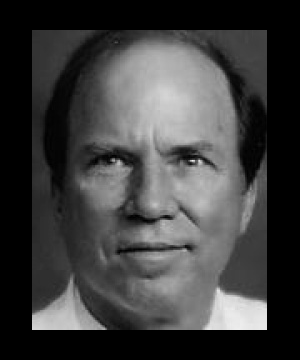
Woodhall “Sandy” Stopford, MD, MSPH, assistant professor, serves as senior consultant emeritus to the Duke Toxicology Program, and was director of the program from 1989 to 2013. He graduated from Harvard Medical School in 1969 and completed his master of science in public health at the University of North Carolina at Chapel Hill in 1980.
- Years at Duke: 46
- Research interests: The development of assays for environmental and industrial exposures to mercury; clinical treatment of mercury intoxication; and the development of exposure parameters for respirable quartz and other respirable aerosols
"During my time at Duke, we’ve developed safer consumer products, primarily for children, but also for adults, in an effort to make a safer environment for citizens across the country. We’ve been very effective in this effort, and that’s been quite enjoyable for me."
In his 40-plus years in the Duke Toxicology Program, Stopford has played a critical role in making consumer and commercial products safe. He is responsible for oversight in the program, which involves maintaining a database of over 1,500 toxic chemicals and conducting the final evaluations of toxicological assessments performed by his team. As a result, he ensures that all products his team considers undergo accurate laboratory testing, pass various risk assessments, and comply with appropriate laws concerning labeling.
While the toxicology program has evaluated over 40,000 products during Stopford’s time at Duke, much of his work has been focused on art, craft, and creative materials, such as crayons, markers, pencils, and paints. He cites the removal of arsenic from paints in the 1980s as one of his most significant career accomplishments.
“We really encourage manufacturers to find the safest materials for their products, whether that means removing certain things or finding less toxic substitutes,” Stopford says.
Stopford has also served as a member of the North Carolina Secretary’s Science Advisory Board since 1986. The board is tasked with advising state officials on public health issues, including environmental health protection, emerging chemical compounds and the effects of contaminants in the environment. While it initially focused on air pollutants and toxic compounds in air, the board’s mission was expanded in 2017 to include contaminations and emerging chemicals of concern in water sources.
“Since I’ve been on the board, we’ve looked at citizen exposure to air toxics, and in more recent years, we’ve started looking at water toxics, as well,” Stopford says. “For instance, we looked at GenX and exposure to hexavalent chromium. Now we’re looking at other chemicals that are of concern.”
Stopford has also been involved with numerous research studies examining the use of pepper spray and its associated health hazards. He plans to continue this research and his work with related programs in 2019 and beyond.